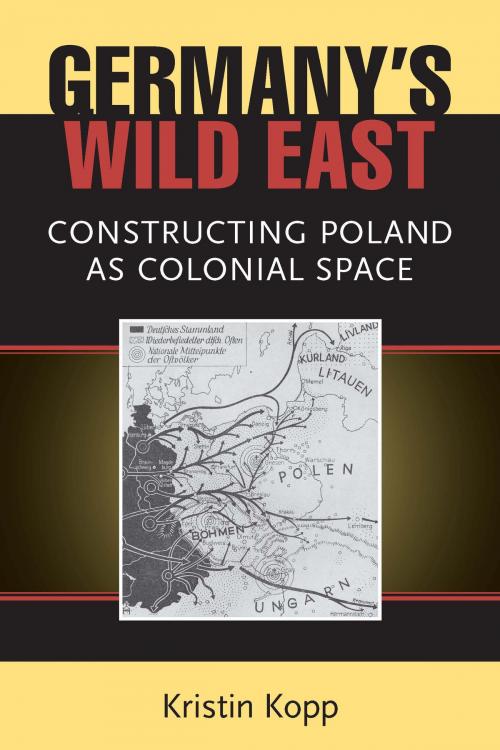Germany's Wild East
Constructing Poland as Colonial Space
Nonfiction, History, Eastern Europe, Germany| Author: | Kristin Kopp | ISBN: | 9780472028580 |
| Publisher: | University of Michigan Press | Publication: | September 27, 2012 |
| Imprint: | University of Michigan Press | Language: | English |
| Author: | Kristin Kopp |
| ISBN: | 9780472028580 |
| Publisher: | University of Michigan Press |
| Publication: | September 27, 2012 |
| Imprint: | University of Michigan Press |
| Language: | English |
In the 19th and early 20th centuries, representations of Poland and the Slavic East cast the region as a primitive, undeveloped, or empty space inhabited by a population destined to remain uncivilized without the aid of external intervention. These depictions often made direct reference to the American Wild West, portraying the eastern steppes as a boundless plain that needed to be wrested from the hands of unruly natives and spatially ordered into German-administrated units.
While conventional definitions locate colonial space overseas, Kristin Kopp argues that it was possible to understand both distant continents and adjacent Eastern Europe as parts of the same global periphery dependent upon Western European civilizing efforts. However, proximity to the source of aid translated to greater benefits for Eastern Europe than for more distant regions.
In the 19th and early 20th centuries, representations of Poland and the Slavic East cast the region as a primitive, undeveloped, or empty space inhabited by a population destined to remain uncivilized without the aid of external intervention. These depictions often made direct reference to the American Wild West, portraying the eastern steppes as a boundless plain that needed to be wrested from the hands of unruly natives and spatially ordered into German-administrated units.
While conventional definitions locate colonial space overseas, Kristin Kopp argues that it was possible to understand both distant continents and adjacent Eastern Europe as parts of the same global periphery dependent upon Western European civilizing efforts. However, proximity to the source of aid translated to greater benefits for Eastern Europe than for more distant regions.















